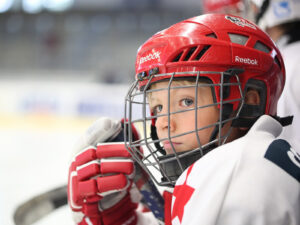Maggie Lawrie: Strathmore superstars
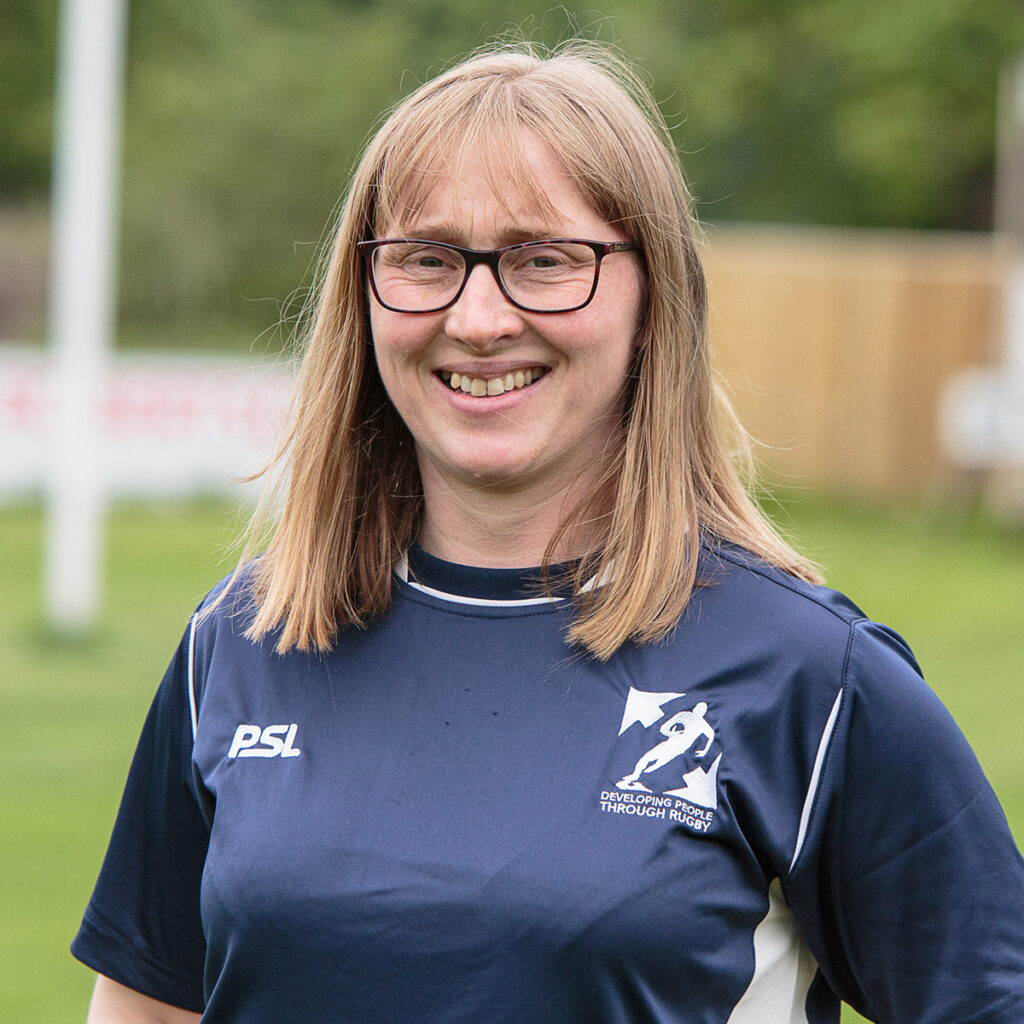
Since starting up in 2017, the Strathmore Community Rugby Trust has grown beyond what its group of founders thought was possible.
Based in a broad valley in the east of Scotland, there are nine different programmes that the trust delivers for the local community, all with the goal to increase physical activity levels among participants, help them develop new skills, and improve social cohesion.
In speaking to Spautism about the different opportunities that are available through the trust, Maggie Lawrie, the Community Trust Manager, outlined two really important programmes that are the backbone of the organisation.
The first is an employability and personal development session for secondary school children, which uses rugby to encourage students to expand their horizons and engage them in different ways.
The second is autism-friendly rugby for primary school children, and it’s inspired a lifelong pathway for autistic children to stay involved in the sport through their teenage years and into adulthood.
“The person in my position before me had an autistic son,” said Maggie. “He saw the potential that rugby could offer for autistic people with sensory processing difficulties.
“The physical contact and deep pressure opportunities that we’ve got through the use of tackle pads in particular can really help people, and the sessions have been created with his knowledge.
“One of the things that makes the programme autism-friendly is the level of support that we have for the young people. We have a coaching ratio of 1:3 at the sessions, and they are doing amazingly well, mainly because the young people who are delivering them have absolutely bought into the idea that rugby is a space for everyone.
“We knew that we would have huge numbers of participants graduating from this programme when they leave primary school and they would need something to go into, so we had to create a pathway.
“Although we are quite a young charity, we have grown to deliver multiple rugby programmes, including youth unified rugby which is for secondary-aged pupils with a need for additional support, and we also have unified and mixed ability rugby for adults.
“We have a pathway for an autistic child to take part right the way through to adulthood – and we are one of the few organisations that can offer that.”
Strathmore Community Rugby Trust have built a very positive pathway, which has also brought to attention a huge demand for more opportunities like this in their own area of Scotland and across the United Kingdom.
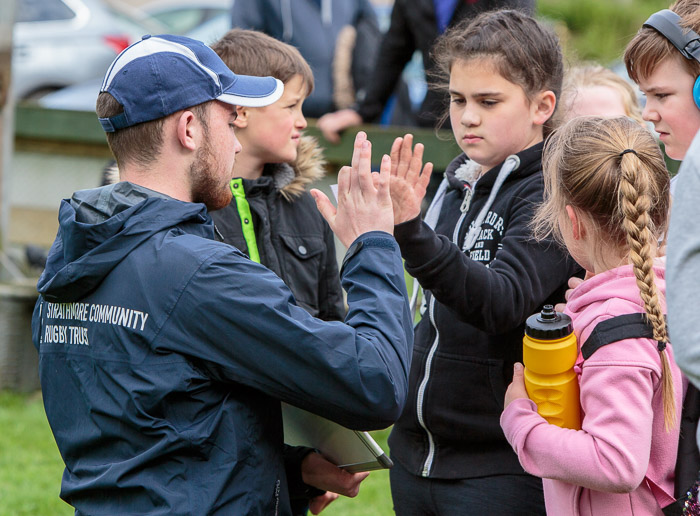
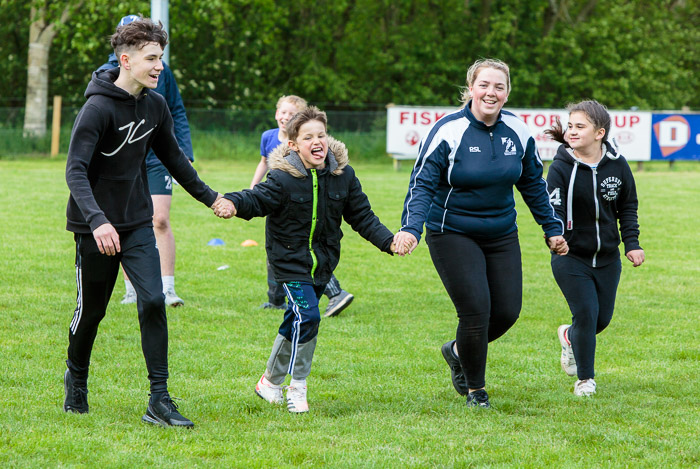
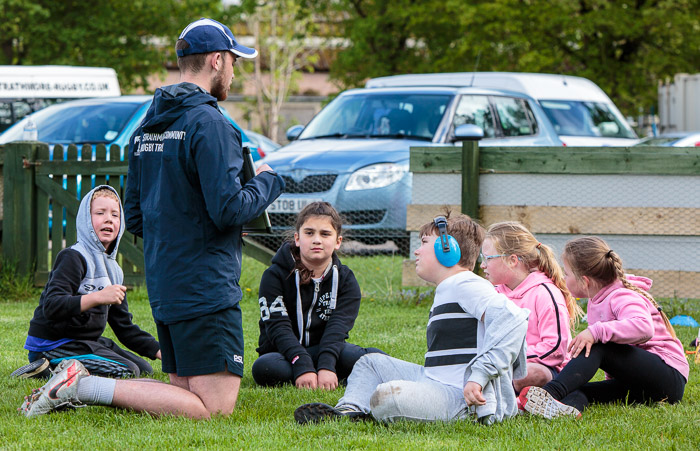
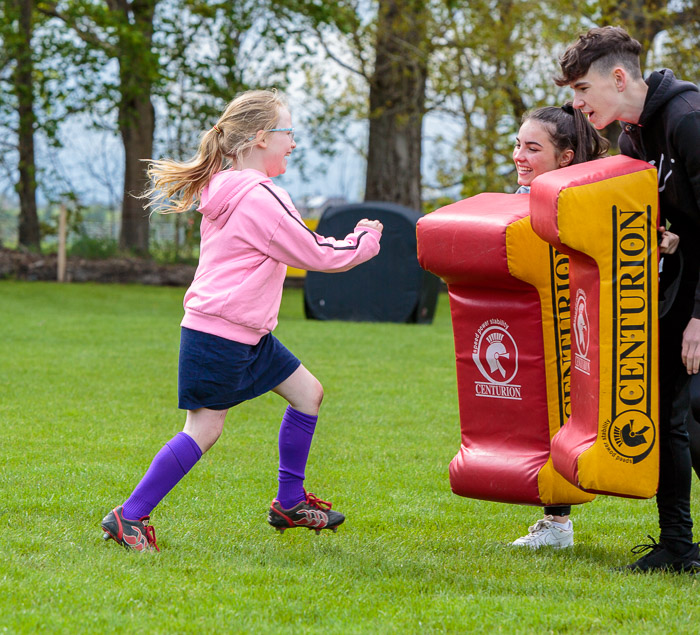
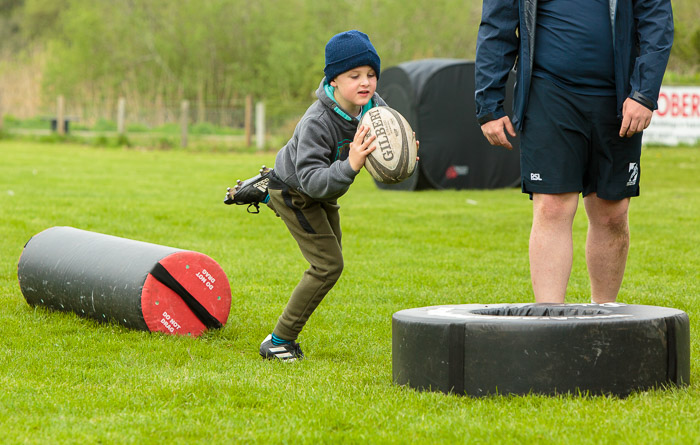
All photos by ASM Media and PR
“We really want to promote our sessions and talk about what small tweaks clubs and organisations can make that would really include the whole community.
“There is a need to help people understand autism in activities; it’s not difficult to become more autism-friendly but it’s lacking in the wider sporting community. There is a big push at the moment to make sport more inclusive and if we can use our experiences to help then we would love to do so.
“We have been delivering our programmes for a few years and we are starting to see the transition that people are making – seeing where some kids started off and now going into mainstream sessions and school classes, which I don’t think mums and dads would have thought was possible.
“There is a recognition that what we are doing is helping in many ways. For example, developing social skills, learning about eye contact, playing games with coaches and peers, and enabling children to manage their own emotions and to self-soothe. It’s giving them an opportunity to learn skills that they will need further on in their lives and in the wider community.
“Some people are travelling an hour to get to our sessions because there is nothing else locally for them. We recognise that this is not sustainable for a lot of people, and it shows us a real need for more inclusive sport in our area that’s truly autism friendly.”
It’s not just the participants that are benefitting from the trust. Many volunteers get involved to make the programmes possible, and they too are building a key awareness about autism that they can take to other areas of their own lives.
“Educating them brings about a wider impact of what’s possible. It’s something for which the trust is very well respected in the community.
“We are always looking for volunteers to come and support the sessions, and our group of Enablers is absolutely fundamental to both the youth unified and mixed ability rugby sessions that we are delivering.
“The role of the Enablers is to enable the player to get involved in the match. We have an interview on our website with a gentleman called Ian who articulates very well what an Enabler is – making sure the players are the ones who are catching the ball and scoring the tries.
“The sessions are not for him but for the people he is supporting, and he gets a lot of enjoyment out of that.”
But Maggie stressed that the opportunities to help improve sport’s inclusiveness do not just exist in their corner of Scotland.
The demand for more welcoming environments is slowly being answered, and an increasing number of positive initiatives are popping up across the British Isles and Europe.
“There are plenty of opportunities to get involved either with our sessions or in Scotland; there are seven clans that do unified and mixed ability rugby.
“There is a huge network down in England as well, in addition to Ireland, Wales, and teams popping up in France, Italy, and Spain.
“If there wasn’t a need for more opportunities, then we wouldn’t be pushing on to provide the things we do. If anyone wants more information they should get in touch and we would be delighted to talk to people.”

